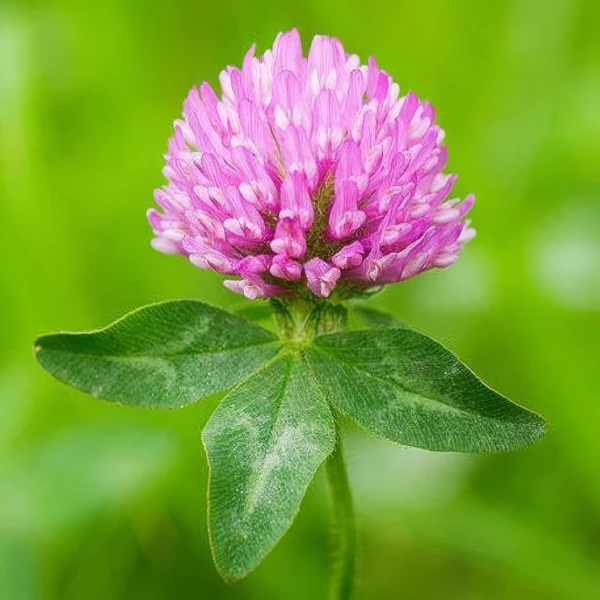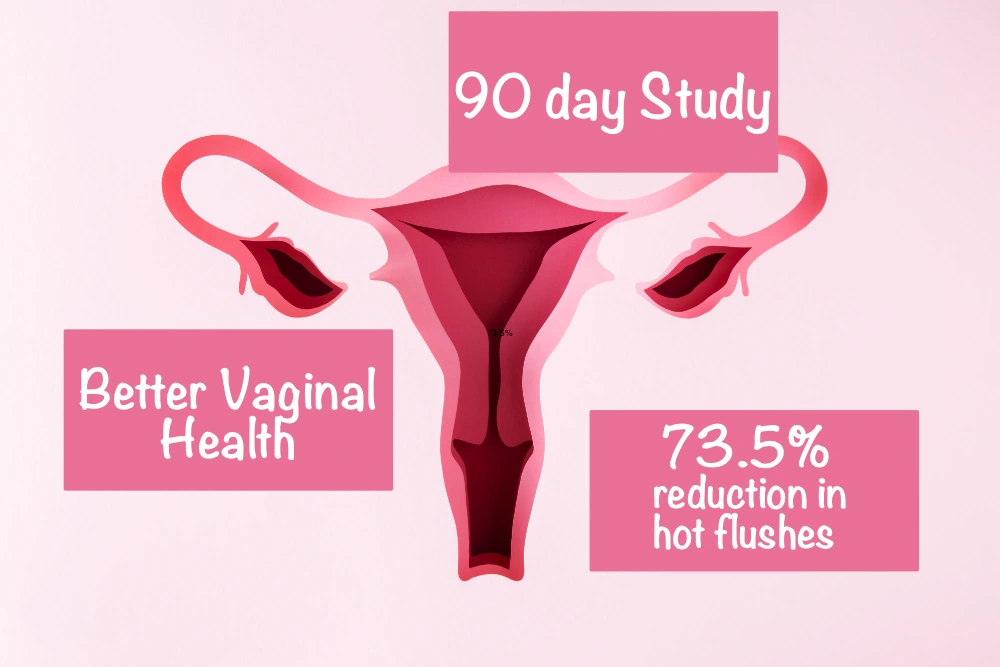Red Clover for Menopause: 5 Key Studies

When women go through menopause, the symptoms can be hard to deal with. There are natural ways to feel better. One of them is the red clover. This simple flowering plant contains special plant compounds called isoflavones, that may help with menopause symptoms.
But does it really work? Let’s look at what science actually tells us. Five important research studies have tested red clover on women going through menopause. These studies looked at how well it works for common problems like hot flushes and mood swings, and checked if it’s safe to use over time. The results are encouraging, and we’ll break down exactly what researchers found.
Red Clover Significantly Reduces Menopausal Symptoms: A 12-Week Clinical Trial
In this 12-week study, 72 postmenopausal women were randomly divided into two groups. The treatment group received two daily capsules containing 40mg dried red clover leaves, while the control group received placebo capsules. Using the Menopause Rating Scale (MRS), researchers measured symptoms before and after treatment.
The results were striking – women taking red clover saw their total symptom scores decrease from 20.41 to 10.08, while the placebo group only decreased from 20.77 to 17.20. The improvement was particularly notable in physical symptoms and psychological symptoms like anxiety and depression.
Conclusion: Red clover proved significantly more effective than placebo in reducing menopausal symptoms, offering a safe and natural alternative for women seeking relief from menopausal discomfort.


Red Clover Shows Powerful Benefits for Multiple Menopausal Symptoms
The 90-day study included 109 postmenopausal women who received either 80mg of red clover isoflavones or placebo daily. The researchers comprehensively evaluated multiple symptoms, including hot flushes, night sweats, and vaginal health markers.
The results were remarkable – women taking red clover experienced a 73.5% reduction in hot flushes, compared to just 8.2% in the placebo group. Additionally, the study found improvements in vaginal health and lipid profiles, with significant decreases in triglyceride levels.
Conclusion: This study demonstrated red clover’s broad-spectrum benefits for menopausal women, showing significant improvements across multiple symptoms with excellent safety profile.
Red Clover Effectively Reduces Hot Flushes in Postmenopausal Women
The researchers conducted a 12-week trial with postmenopausal women experiencing at least five hot flushes daily. The treatment group received 80mg of red clover isoflavones daily. The study found a significant 44% reduction in hot flushes in the treatment group, with benefits becoming apparent as early as 4 weeks into treatment.
Conclusion: The study provided strong evidence for red clover’s effectiveness in reducing hot flushes, with a relatively quick onset of action and good tolerability.

Red Clover Improves Menopausal Symptoms and Lipid Profiles
Sixty postmenopausal women participated in this 90-day trial, receiving either 80mg of red clover isoflavones or placebo daily. The study measured various outcomes including menopausal symptoms, vaginal cytology, and blood lipid levels.
Results showed significant improvements in overall menopausal symptoms, with particular benefits for vaginal health. Additionally, the study found positive effects on blood lipid profiles, suggesting potential cardiovascular benefits.
Conclusion: The research demonstrated red clover’s multi-faceted benefits, improving both menopausal symptoms and metabolic health markers.
Long-Term Safety of Red Clover for Women with Family History of Breast Cancer
The study followed 401 women with a family history of breast cancer over three years. Participants received either red clover isoflavones or placebo, with regular monitoring of breast density, endometrial thickness, and other safety markers.
Results showed no adverse effects on breast tissue density or endometrial thickness. The supplement was well-tolerated throughout the extended study period, with no significant side effects reported.
Conclusion: This landmark study provided strong evidence for the long-term safety of red clover supplementation, even in women with increased breast cancer risk.

